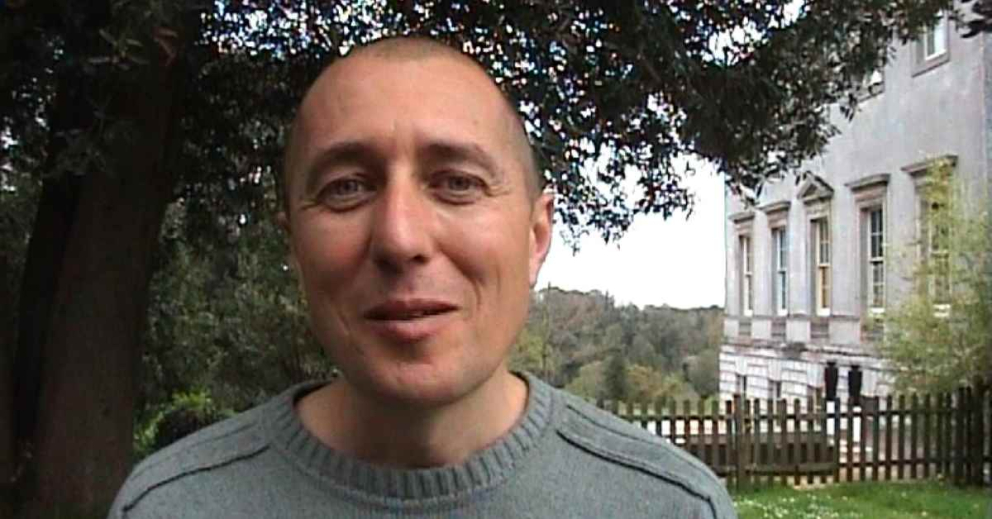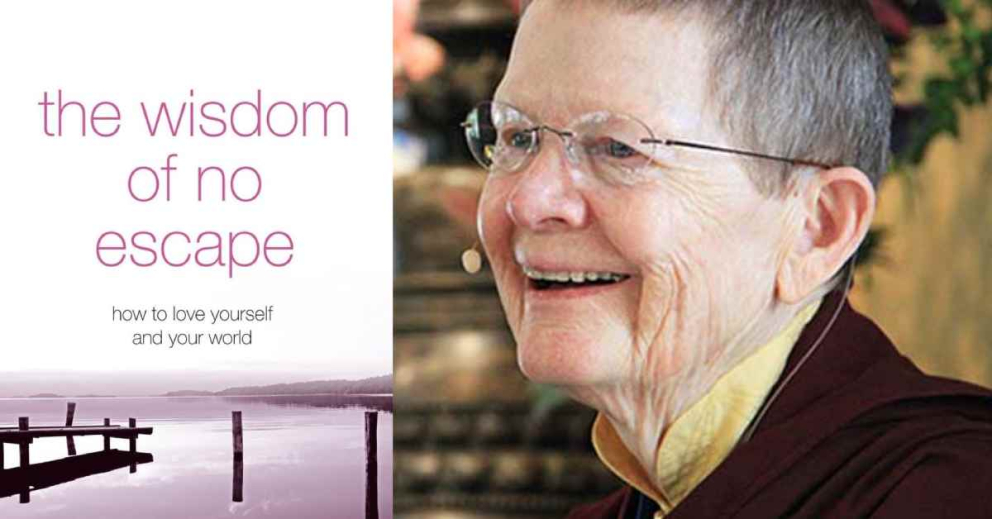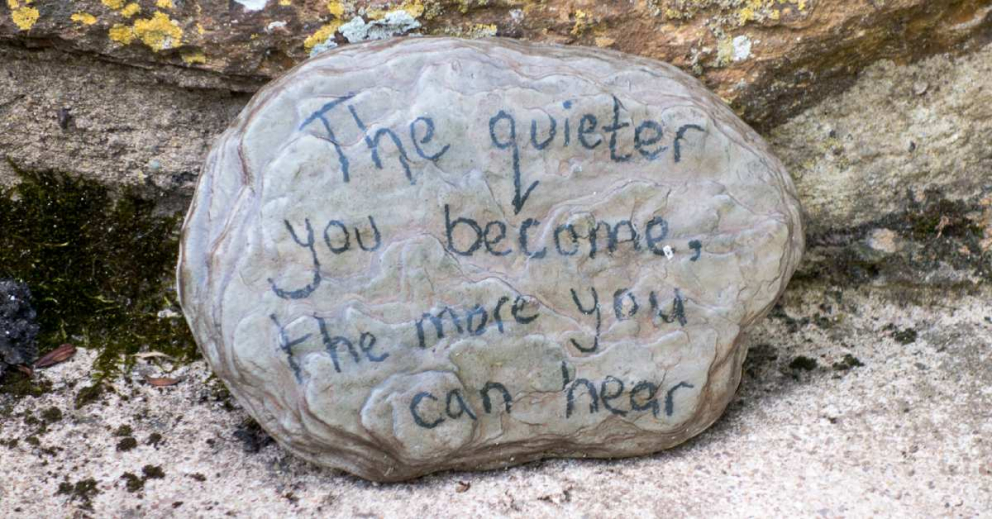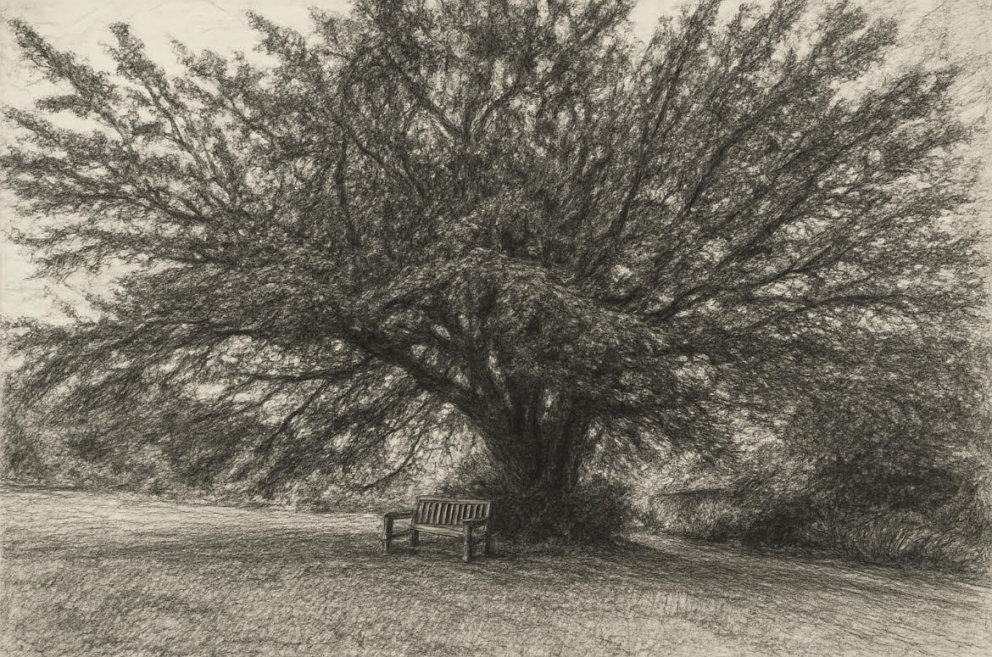Sharpham Stories - an interview with Sophy Banks
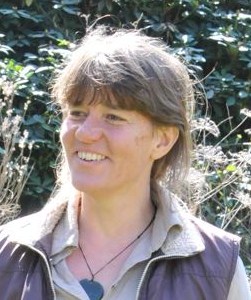 |
Daphne Pleace writes stories about Sharpham - here she interviews Sophy Banks (right), one of the retreat leaders on our Burnout retreat, aimed at people suffering the effects of stress.
Finding self-sustainability with Sophy
We have a great team of leaders with a range of expertise in mindfulness, models and techniques for managing stress and burn-out, and retreat facilitation. I had the opportunity to spend some time with one of them, Sophy Banks, at her home near Sharpham.
It was a beautiful sunny day after a lot of rain and as the garden was a little waterlogged, we sat indoors, looking through a large window over an apple and pear orchard. I asked Sophy first to say something about her background.
“Years ago I was an engineer, and information systems consultant, and my realisation that science, technology and our key models of living could not sustain us started there,” she told me.
“I began my inner journey in the mid-1990s and became a psychotherapist and facilitator. In 2006 I helped to set up the first ‘Heart and Soul’ group of the newly forming Transition Town Totnes.”
I remembered that one of Totnes’s many claims to fame is that it is the birthplace of the Transition Movement - a concept and a practice primarily about coming together in a community to rebuild local resilience in sustainable, enjoyable and inclusive ways. You can read more about the movement’s international organisation here and see a potted history of the movement here
“For the next decade or so I worked on transition projects around the world, co-designing and delivering training programmes for those wanting to start their own Transition activities,” Sophy continued.
“In 2016 I realised I was on the edge of burn-out - something I had been researching and speaking about within Transition. I took a step back to recover and develop my own work and teaching. This included sharing what I had learnt about the underlying causes of burn-out in individuals, organisations and on a planetary scale.”
“One focus is on how we as individuals need to stop over-riding the signals from our bodies - disruptions in our emotions, sleep patterns, eating habits, or other physical symptoms - and find sustainable ways to manage and maintain ourselves in these challenging times. We need to interrupt and change our own story of 'business as usual' when it’s clearly harming us”
I recognised the reference to The Work that Reconnects, by Joanna Macy (pictured left), a major influence on Sophy’s work. We spent some time discussing this before we came back to that core word sustainability which is at the heart of The Sharpham Trust’s work in general, and the Sustaining Ourselves retreats in particular.
I asked Sophy about the Sustaining Ourselves retreats she has co-facilitated so far: what kind of people came on them; what was the core content of the programme; what did participants take away with them?
“It’s interesting to me that there have been people from a range of backgrounds - all experiencing burn-out to some degree - and at different stages in that process. Some who’ve been through it, some teetering on the edge of it, and some who are coming to retreats regularly as part of their recovery programme.
"We tend to think of burn-out happening in fast-paced, cut-throat businesses, or in the helping professions, but there’s evidence of it in most parts of our modern world,” Sophy explained.
She also spoke about how the core content of the retreats offers theoretical and experiential approaches: conceptual frameworks, and practical exercises which participants can use at home, such as breathing techniques, meditations, contact with nature, and personal enquiry.
“There are many different approaches and we constantly adjust to the needs of the group," she said. "The key opportunity on this retreat is taking a substantial amount of time to stop. To stop and reflect. To pay attention to ourselves. To be mindful of what is happening, so we can respond. Without stopping to listen we can’t recognise the symptoms telling us that something is wrong”.
“Previous participants have said that having raised awareness about the early signs of burn-out, and having models and practices for understanding and managing it have been of great value, as has that crucial time to stop.”
“To be, rather than do,” she added.
It was nearly time for us to stop. My final question was to ask Sophy what she did to sustain herself.
She mentioned the action/reflection cycle, and that knowing where she was on it at any one time was crucial. She said that it was easy for some people to be at the extreme action end for too long.
“I pay attention to my body and what it’s telling me. If I’ve been working hard for some time I build in time for recovery afterwards. I have ongoing mentoring, and I take the space I need, for instance down time with friends, being out in nature or on my bike," she said.
"And I take time to notice what is good in life, to slow down and savour the kindness, generosity and warmth that is within and around us every day, which we can miss when we’re under pressure.”
I left Sophy’s house feeling enriched for having met her, and from our discussion. And I was given a bag of lovely apples and pears to take away too.
Thank you Sophy.
Find out about Sharpham retreats here: www.sharphamtrust.org/retreats
Daphne is a volunteer story-teller for the Sharpham Trust. She blogs at www.daphnepleace.co.uk/blog





